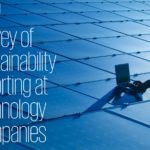Australian companies significantly lag their international counterparts in triple bottom line reporting according to new research by KPMG.
The forthcoming research paper titled KPMG International Survey of Corporate Sustainability Reporting 2002, was previewed at a business forum attended by over 100 people last night, co-hosted by the University of Technology Sydney Corporate Sustainability Project and consultants McKinsey and Co.
KPMGs local ethics and sustainability practice leader Attracta Lagan told the forum the research showed only 14 per cent of Australian companies published environmental, social or sustainability reports in 2002, compared with 45 per cent of Global Fortune Top 250 companies.
This rate of triple bottom line reporting in Australia is actually one per cent lower than the 15 per cent rate recorded in 1999.
However, Lagan said, 76 per cent of Australian companies now include environmental or social information in their annual report, compared to only 49 per cent internationally, and 52 per cent of Australian companies include such information on their websites.
She told the forum the research showed tripe bottom line reporting is moving from fringe to mainstream, and that companies were increasingly realising that there is a business case for corporate social responsibility.
Weve re-engineered and downsized all we can, Lagan said. Most organizations are now achieving productivity around 40-50 per cent. To gain further workplace productivity now we have to tap into the discretionary effort thats still available.
Lagan said this would require corporations to improve their corporate culture, to become the employer of choice, the neighbour of choice, and the supplier of choice. Lagan said corporations often find it easier to deal with external stakeholders than with internal stakeholders such as their own workplace.
Other speakers at the forum included Dedee Woodside, speaking on the shift to sustainability in the rice growing industry in the Riverina district of NSW, panellists Eva Cox AO of UTS and Graham Jennings, national manager of rerual and regional banking for Westpac, and chairman Professor Dexter Dunphy, head of the UTS Corporate Sustainability Project.
Eva Cox criticized the tendency to assume there is a consensus model for resolution of sustainability issues among often-conflicting stakeholders in corporations.
What gets left out is power. Decisions have to be made, and the question is by who? Cox said.
Cox said along with a number of corporate sponsors including the Body Shop, she is currently working on a grant application to study how to develop genuine measures for an ethical business in an environment where all companies say they are ethical.
McKinseys Josh Dowse said future forums in the bimonthly corporate sustainability series would move from a general to a specific focus, covering topics including sustainable commercial buildings, water, and the problems of organizational change.


